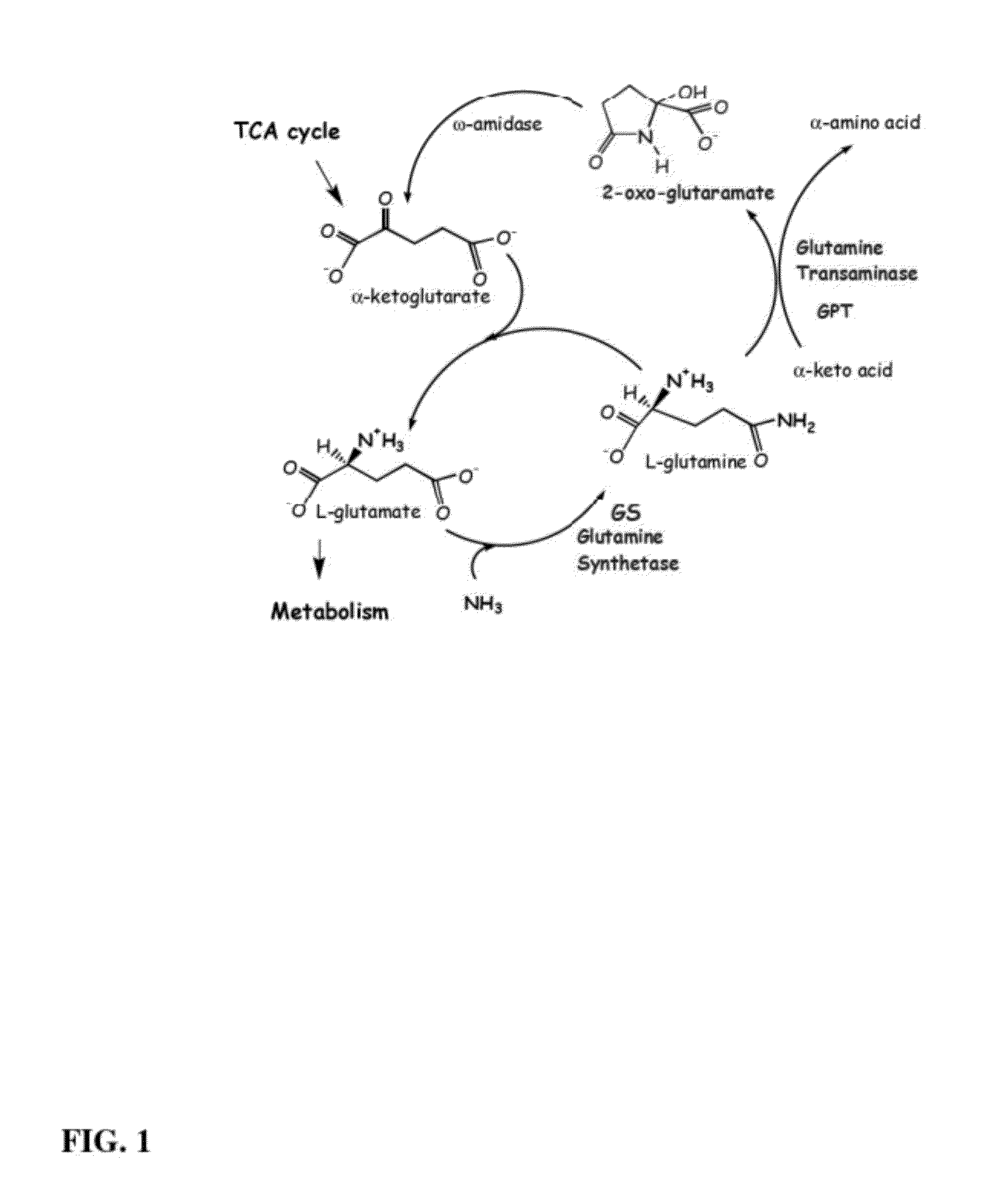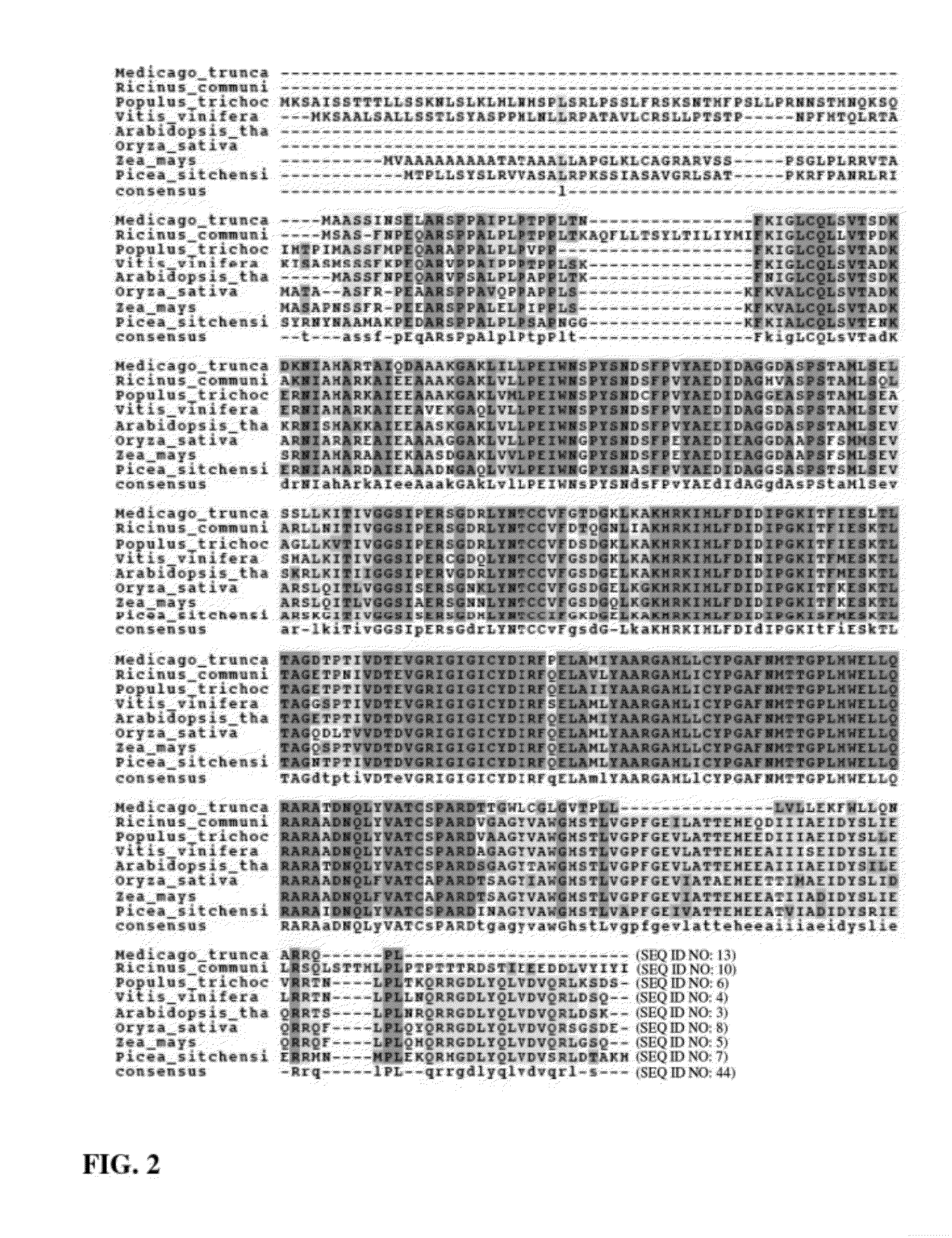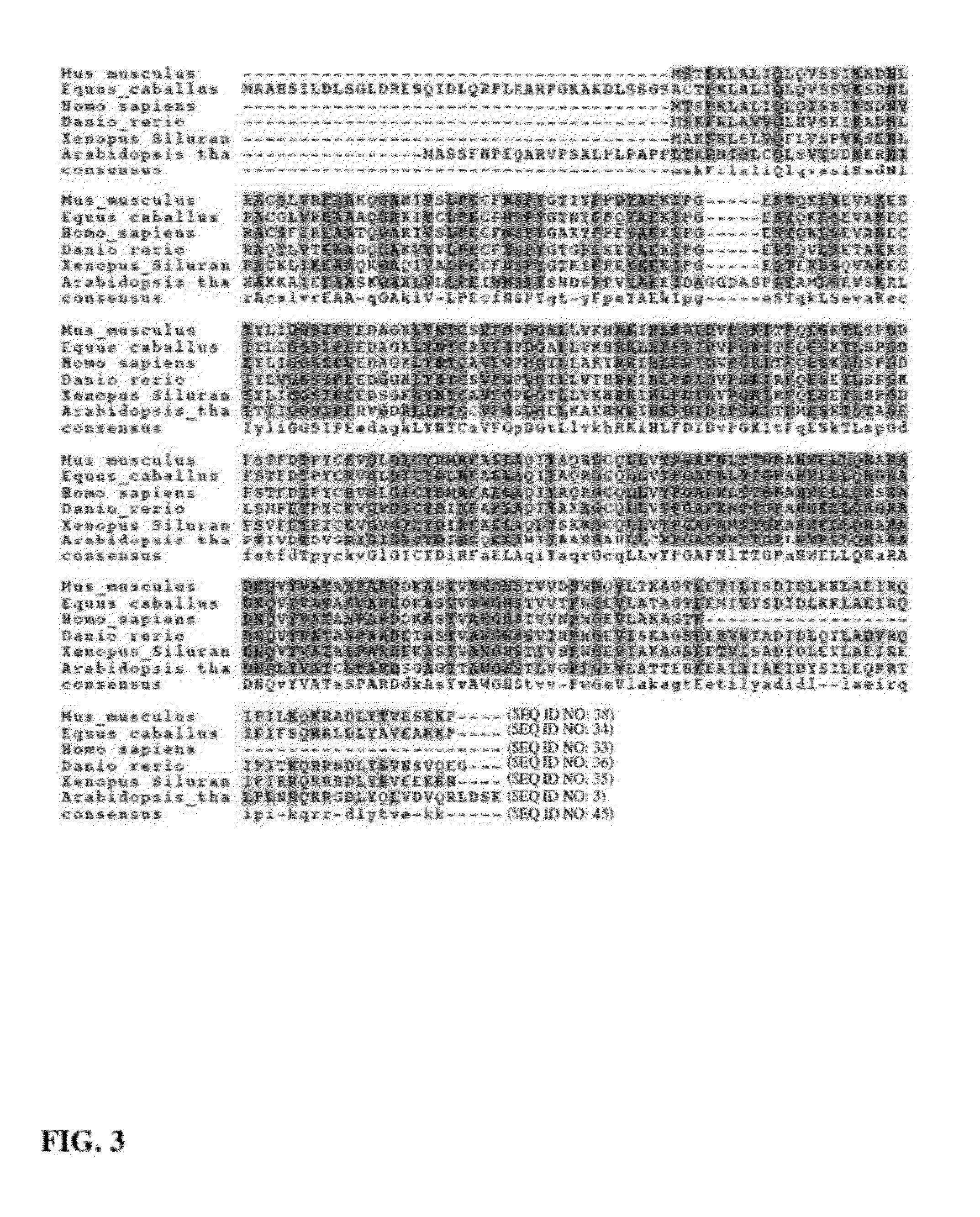Increasing plant growth by modulating omega-amidase expression in plants
a technology of plant growth and omega-amidase, which is applied in the field of increasing plant growth by modulating omega-amidase expression in plants, can solve the problems of reducing -amidase expression in leaf tissue, and achieve the effects of increasing the nitrogen use efficiency of plants, increasing leaf-to-root ratio, and increasing leaf-to-root ratio
- Summary
- Abstract
- Description
- Claims
- Application Information
AI Technical Summary
Benefits of technology
Problems solved by technology
Method used
Image
Examples
example 1
Effects of Increasing Expression Levels of GS and GPT on Ω-Amidase Pathway
Materials and Methods:
Generation of Transgenic Plants:
[0160]Plants were genetically engineered to over-produce 2-oxoglutaramate by over expressing GS and GPT transgenes, as described in U.S. patent application Ser. No. 12 / 551,271. The resulting phenotypic effects were evaluated. Three sets of transgenic tobacco lines were generated: one set over-expressing GPT to increase GRMT catalytic capacity; a second set over-expressing GS to increase, in the leaves only, the catalytic capacity to make the glutamine substrate of GPT; and a third set over expressing GS and GPT, produced by sexually crossing fast-growing progeny of the single transgene lines.
Growth of Engineered Tobacco and Arabidopsis:
[0161]Wild type and engineered tobacco seeds were surface sterilized and germinated in phytotrays containing M&S medium. The medium for the engineered plants contained kanamycin (10 ug / ml). The vigorously growing seedlings w...
example 2
Plant Expression Vector Modulating Root Ω-Amidase Expression Levels
[0169]Ω-amidase expression levels are increased in root tissues by generating transgenic plants transformed with expression constructs containing an ω-amidase coding sequence, including but not limited to any of the ω-amidase coding sequences disclosed herein, under the control of a root-preferred promoter. It is believed that increased levels of ω-amidase in root tissues result in increased breakdown of the signal metabolite 2-oxoglutaramate.
[0170]A construct for transforming plants includes an expression cassette encoding a suitable root-preferred promoter, a sequence encoding a plant ω-amidase, and a terminator sequence. In this example, the expression cassette contains the glycine-rich protein (GRP) promoter (Goddemeier et al., 1998, Plant Mol. Biol. 36(5): 799-802), the Arabidopsis thaliana ω-amidase coding sequence, and the NOS terminator. The GRP promoter sequence is shown below [SEQ ID NO: 16]:
[0171]
GAAATTAAA...
example 3
Increased Growth of Transgenic Alfalfa Plants Carrying Root-Preferred Ω-Amidase Transgene
[0177]In this example, alfalfa plant growth was increased by introducing an ω-amidase transgene under the control of a highly root-preferred promoter. The resulting transgenic alfalfa plants showed decreased 2-oxoglutaramate concentration in roots, increased leaf-to-root ratio of 2-oxoglutaramate, and enhanced growth relative to wild type alfalfa plants. Alfalfa plants (Medicago sativa, var Ladak) were transformed with the Arabidopsis ω-amidase coding sequence truncated to remove the chloroplast transit peptide, under the control of a truncated Agrobacterium rhizogenes RolD promoter within the expression vector pTF101.1.
Materials and Methods:
Agrobacterium Vectors:
[0178]The expression vector pTF101.1 was engineered to carry the ω-amidase transgene expression cassette of SEQ ID NO: 39 (RolD promoter+ω-amidase+NOS terminator) and was transferred to Agrobacterium tumefaciens strain LBA4404 cultures ...
PUM
 Login to View More
Login to View More Abstract
Description
Claims
Application Information
 Login to View More
Login to View More - R&D
- Intellectual Property
- Life Sciences
- Materials
- Tech Scout
- Unparalleled Data Quality
- Higher Quality Content
- 60% Fewer Hallucinations
Browse by: Latest US Patents, China's latest patents, Technical Efficacy Thesaurus, Application Domain, Technology Topic, Popular Technical Reports.
© 2025 PatSnap. All rights reserved.Legal|Privacy policy|Modern Slavery Act Transparency Statement|Sitemap|About US| Contact US: help@patsnap.com



